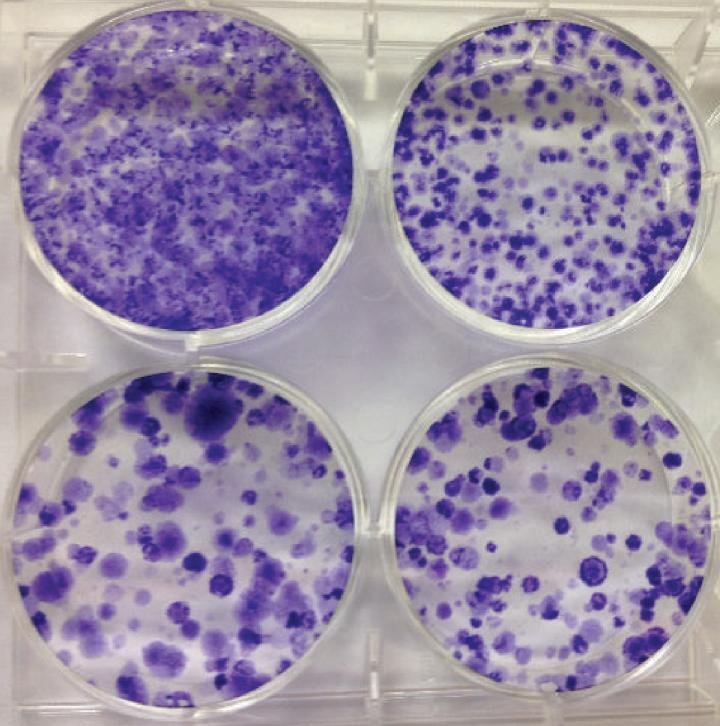IMAGE: Compared with a control (top left), removal of βcatenin (top right) or Importin-11 (bottom left and bottom right) reduces the growth of colorectal cancer cells carrying a mutation in APC….
view more
Mis et al., 2019
Researchers at the University of Toronto have identified a key protein that supports the growth of many colorectal cancers. The study, which will be published December 27 in the Journal of Cell Biology, reveals that a protein called Importin-11 transports the cancer-causing protein βcatenin into the nucleus of colon cancer cells, where it can drive cell proliferation. Inhibiting this transport step could block the growth of most colorectal cancers caused by elevated βcatenin levels.
Around 80% of colorectal cancers are associated with mutations in a gene called APC that result in elevated levels of the βcatenin protein. This increase in βcatenin is followed by the protein’s accumulation in the cell nucleus, where it can activate numerous genes that drive cell proliferation and promote the growth and maintenance of colorectal tumors. But how βcatenin enters the cell nucleus after its levels rise is poorly understood. “Because the molecular mechanisms underlying βcatenin nuclear transport remain unclear, we set out to identify genes required for continuous βcatenin activity in colorectal cancer cells harboring APC mutations,” says Stephane Angers, a professor in the Department of Pharmaceutical Sciences at the University of Toronto’s Leslie Dan Faculty of Pharmacy.
Using CRISPR DNA editing technology, Angers and colleagues, including graduate student Monika Mis, developed a new technique that allowed them to…



